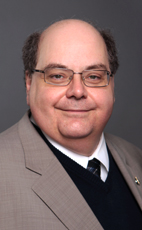Mr. Speaker, we all have all known or seen people struggling with addictions. Very often the problem is with alcohol. Unfortunately, some are addicted to illicit drugs. It is not a happy situation for their parents, their friends, their loved ones or themselves.
These people not only need help, but also some supervision to reduce the problems they can cause. A neighbourhood where drugs are sold is also one where discarded dirty needles litter the ground and where people use drugs out in the open.
In this situation, people could well be using extremely dangerous drugs, perhaps cut with unknown substances by unscrupulous drug traffickers who are only interested in making money on the backs of their customers. This means we are facing a serious public health problem.
Clearly, the fight against drugs includes a policing component: some people need to go to jail. An individual bringing in a container of cocaine or heroin is not really someone who is socially responsible. In fact, quite the opposite is true. People who become victims of this drug need medical supervision. It has been said that all it takes is a little willpower and they could take care of themselves. This is not true. They need medical supervision to leave drug use behind or to not die from it.
Earlier, I spoke about a problem we are currently facing in Montreal. The same problem can be seen from time to time everywhere in Canada when someone cuts drugs with a harmful substance or when the drug purity is too high or too low. This leads to overdoses, and people using this drug are at risk of dying in an alley or a squalid apartment. The risk is extremely high.
People in one Vancouver neighbourhood recommended a medical solution. Right away, this makes it possible to get rid of one problem: no drug trafficker has control over that area. A centre is not meant to sell drugs or encourage people to use them. It is not meant to be placed across from a school, where children could see things.
The danger is already there. If we want to avoid having used syringes in a schoolyard and having children find drug users taking drugs out in the open, the solution is a safe injection site. Obviously, there is a lot of confusion. People think that we want to encourage drug use. However, that is not true. Nothing in the InSite project aims to encourage drug use. The opposite is true. This is a public health project.
Moreover, the Supreme Court has been very clear about this. In 2011, it stated that InSite's services were essential and that it had to remain open under the exception set out in section 56 of the Controlled Drugs and Substances Act. It is an essential service in the context of a medical action.
It is understandable that the minister wants to impose conditions to ensure that safe injection sites do not become places where drugs are sold. No one wants that. However, we want at all costs to prevent a situation where a functional medical institution is not allowed to operate under the pretext of ensuring public safety.
At this safe site, drug users can get immediate support if they react badly to a drug. This person may be an old friend or a member of an MP's family because, unfortunately, no one is safe. Also, if someone decides one day that they want to stop using drugs, the employees at the safe injection site can give that person medical and psychological support.
We could go on and on about this. I understand that people are afraid, but this should in no way be turned into a police issue. Would conditions like this be imposed on an Alcoholics Anonymous chapter? Never. Would such restrictive conditions be imposed on other public health organizations? No, we would not do that either. The government obviously has a double standard. Is alcohol more socially acceptable than drugs?
It is not easy living with an addiction, whether it is to alcohol or drugs. These people have the right to our support. We must have a minimum of decency and empathy towards our fellow Canadians in difficulty. Is there anything more difficult than dealing with an addiction? We have to extend a hand to these people who are suffering greatly and provide them with medical, physical and emotional support.
Since a centre was established in Vancouver, there have been 35% fewer deaths. That kind of centre is really needed. The Supreme Court recognized that it was necessary, so, do not tell me it is not. We could talk a long time about the merits of this institution, and I believe that many of my colleagues on both sides of the House think that it makes sense from a medical perspective.
What we really cannot agree on are the conditions for establishing this site. The Conservatives say that it would be horrible for these sites to be located near hospitals or schools, and that we have to think of the children. However, the risk of finding dirty needles on school property is much higher if the neighbourhood does not have a safe injection site. I know that there are some police officers and former police officers in the House.
These centres fall within the realm of public health not just because they help people with addictions, but also because the general public would no longer have to experience the most obvious problems associated with living in a neighbourhood where there is a major addiction problem.

